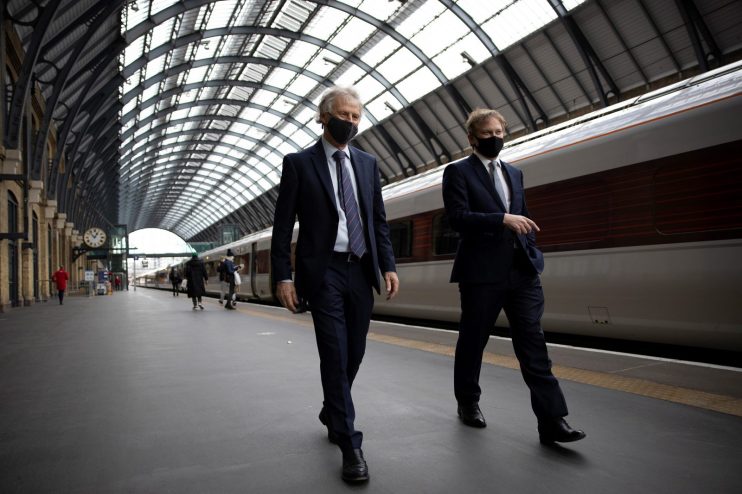Flexible season tickets on sale from 21 June under new rail plan

Flexible season tickets will go on sale from 21 June as part of newly announced reforms that represent the most comprehensive overhaul of the UK’s railways in decades.
The long-awaited Williams-Shapps review, which was first mooted nearly four years ago, has finally been published by the Department for Transport (DfT).
The paper proposes a number of steps to modernise the UK’s railways, which have been all but nationalised due to the pandemic.
As well as the flexible ticketing option, which will see passengers able to buy tickets to travel two or three times a week, rail firms will also introduce more more pay as you go, contactless and digital ticketing on smartphones.
Rail and commuter bodies welcomed the plans, saying that reforms to the fares system were long overdue.
Commenting on behalf of the UK’s rail franchises, Andy Bagnall, director general of the RDG, said: “Flexible tickets for commuters and more pay-as-you-go are good news for passengers.
“To really maximise the benefits and make it easier for people to get good value fares requires government to go further and get under the bonnet to fix the engine of the fares system.”
Passengers will be able to use the new season tickets from 28 June.
There will also be a new centralised ticketing system, potentially a major blow to Trainline, the current market leader in rail e-tickets.
Shares in the FTSE 250 firm fell 23 per cent this morning as markets digested the news.
No more ‘terrible sandwiches’
The new tickets are just the tip of the iceberg of what ministers are hoping will be a fresh start for the much-criticised rail franchise system.
First carried out by former British Airways chief Keith Williams back in 2018, the subsequent collapse of the railways due to the pandemic meant that the review needed to be pushed back.
Before the Open: Get the jump on the markets with our early morning newsletter
When the pandemic struck, ministers all but ended the franchise system, placing the country’s trains on new emergency measures, which they said would be the first stage in wholesale changes.
Central to this is the much-anticipated creation of a new “guiding mind” for the network, which will be called Great British Railways.
According to the DfT, this body, which will absorb Network Rail, will “integrate the railways, owning the infrastructure, collecting fare revenue, running and planning the network, and setting most fares and timetables”.
It will contract private partners to operate most trains to the timetables and fares it specifies, a model currently used by Transport for London for the Overground and Docklands Light Railway services.
The new Passenger Service Contracts will include incentives for operators to run high-quality services and increase passenger numbers, the DfT said.
Boris Johnson said the new organisation would give passengers the service they “deserve”.
“I am a great believer in rail, but for too long passengers have not had the level of service they deserve”, he said.
“By creating Great British Railways, and investing in the future of the network, this government will deliver a rail system the country can be proud of”.
Transport secretary Grant Shapps said that the reforms would bring an end to the current “complicated and broken system”.
Speaking to the BBC this morning, he added: “I want the ticketing to be straightforward and simple and we won’t be going back to the days of British Rail with terrible sandwiches and all the rest of it.”
Over the course of the pandemic, the government has spent £10bn propping up the railways after a historic collapse in passenger numbers.
But despite the pledges, not all were happy. Mike Lynch, general secretary of the RMT union, said the reforms were a “missed opportunity”.
“The Government talk about ending a generation of fragmentation but then leave the same private companies in place under this arrangement to extract management fees that could be invested in to building a truly integrated national rail network.”
“The taxpayer carries all the risk while the train companies carry out bags of cash.”